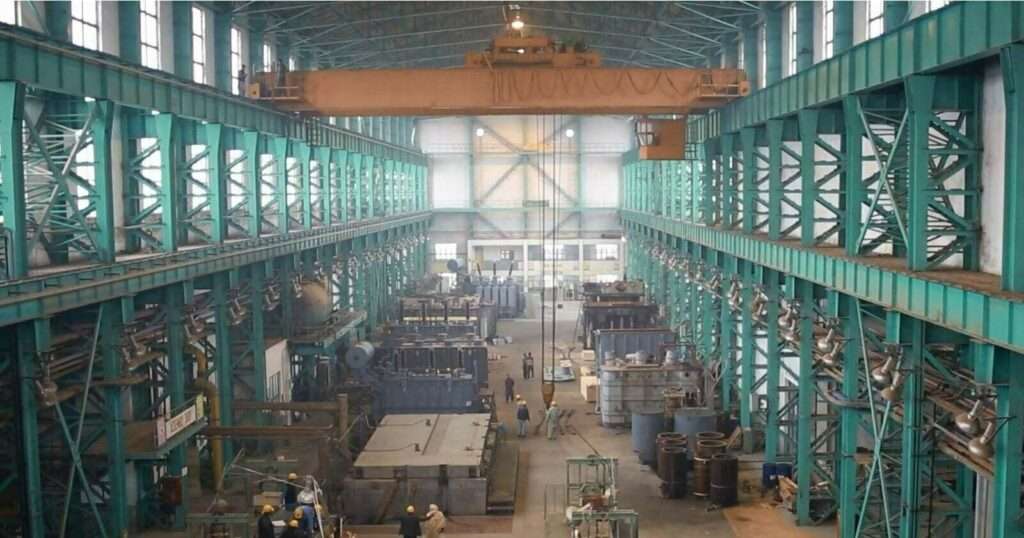New Privatisation Framework for Pakistan
Report on Findings from Consultative Workshop with Stakeholders

Download the PDF right now by clicking the link below or scroll down to read.
Picture library
1. Introduction
The Policy Research Institute of Market Economy (PRIME), as part of the project titled “Privatisation Acceleration Initiative” conducted the “Workshop of Privatisation and PSE Policies of the Federal Government” on the Thursday 6th of December 2023, at the Best Western Premier in Islamabad.
The workshop had participants/ representation from the Competition Commission of Pakistan, the Petroleum Division (Energy Ministry), the PSEs Zarai Taraqiati Bank Limited (formerly Agricultural Development Bank of Pakistan), regulator National Electric Power Regulatory Authority, think tank Center for Economic Research in Pakistan, and the multilateral lender Asian Development Bank (ADB).
The session was chaired by the Privatisation Minister Fawad Hasan Fawad, and was conducted by the Executive Director PRIME Ali Salman and Programme Director Syed Ali Ehsan. Political Economist and PRIME Distinguished Fellow Dr. Khalil Ahmad facilitated the discussions.
The first segment of the workshop contained a presentation by Lahore University of Management Sciences (LUMS) Fellow at PRIME Hassan Abbas, with his focus on facts related to privatisation.
Next was an interactive session with participants exchanging their diagnoses on repeated failures to privatise Public Sector Enterprise (PSE). This was followed by a discussion session on amendments to the privatisation policy and the PSE Policy. The discussion was held under Chatham House Rules.
The Workshop was concluded with comments by the Privatisation Minister followed by a networking exchange over Hi-Tea.
The workshop had participants/ representation from the Competition Commission of Pakistan, the Petroleum Division (Energy Ministry), the PSEs Zarai Taraqiati Bank Limited (formerly Agricultural Development Bank of Pakistan), regulator National Electric Power Regulatory Authority, think tank Center for Economic Research in Pakistan, and the multilateral lender Asian Development Bank (ADB).
The session was chaired by the Privatisation Minister Fawad Hasan Fawad, and was conducted by the Executive Director PRIME Ali Salman and Programme Director Syed Ali Ehsan. Political Economist and PRIME Distinguished Fellow Dr. Khalil Ahmad facilitated the discussions.
The first segment of the workshop contained a presentation by Lahore University of Management Sciences (LUMS) Fellow at PRIME Hassan Abbas, with his focus on facts related to privatisation.
Next was an interactive session with participants exchanging their diagnoses on repeated failures to privatise Public Sector Enterprise (PSE). This was followed by a discussion session on amendments to the privatisation policy and the PSE Policy. The discussion was held under Chatham House Rules.
The Workshop was concluded with comments by the Privatisation Minister followed by a networking exchange over Hi-Tea.
2 Identification of Problems
The first interactive discussion revolved around the identification of recurring systemic patterns hindering past privatisation attempts by various governments.
2.1 Problems Stemming from Human Resource Complexities
A significant number of pressures emanate from the labor force related complexities. These were traced to opposition by unions, over extended job contracts which no new owner would plausibly try to accept.
2.1.1 Political Resistance by employee unions
The participants raised the matter of employee unions blocking privatisation attempts through political resistance and legal measures. Employee unions in many commercial PSEs have direct affiliation with political parties. As large, organized voter segment, employee unions are able to exert significant pressure on political representatives to oppose privatisation.
2.1.2 Legal Resistance by Unions and Special Interests
Another mechanism that has blocked privatisation efforts has been the invocation of courts by special interests. Unions as well as ex-servicemen communities, and even Public Interest Litigation lawyers are able to obtain legal stay orders at different levels of a privatisation process to completely paralyze the process.
2.1.3 Unsuitable Human Resource and Rigid Ecosystem
Private investors seeking to turnaround PSEs are unable to relocate, dismiss or terminate the employment contracts of unsuitable HR due to internal organizational rules, or legal protections contained within past legal precedent established by the judicial courts.
Many PSEs contain specialized positions which would otherwise not exist in the private sector. Mostly, these employees cannot be utilized under a new management plan brought in by the private investor. At the same time, the courts have generally protected the positions and financial compensation of such employees, adding a layer of management complexity, and an additional cost burden without value addition.
Many PSEs contain specialized positions which would otherwise not exist in the private sector. Mostly, these employees cannot be utilized under a new management plan brought in by the private investor. At the same time, the courts have generally protected the positions and financial compensation of such employees, adding a layer of management complexity, and an additional cost burden without value addition.
2.1.4 Conflicting Interests of Management
It was identified during the session that Commercial PSEs provided civil servants with the opportunity to draw compensation up to three or four times higher than their salaries. Many serving civil servants are on the boards of Commercial PSEs.
On the other hand, bureaucracy will frequently collude with politicians and aid them in developing their political capital by facilitating the creation of low-level jobs in PSEs and hiring those with political references to fill the positions.
A major chunk of public sector procurement occurs in PSEs, and this procurement is not transparent. Leakages in procurement may go towards benefiting unscrupulous and powerful employees such as those with influence in unions and management as well as political leaders and patrons, creating direct conflict with the privatisation process.
On the other hand, bureaucracy will frequently collude with politicians and aid them in developing their political capital by facilitating the creation of low-level jobs in PSEs and hiring those with political references to fill the positions.
A major chunk of public sector procurement occurs in PSEs, and this procurement is not transparent. Leakages in procurement may go towards benefiting unscrupulous and powerful employees such as those with influence in unions and management as well as political leaders and patrons, creating direct conflict with the privatisation process.
2.1.5 Legislative and Judicial Uncertainties
Amongst the identified issues were uncertainties caused by conflicting legislation. New laws conflict with older laws, creating ambiguity in what should be well-established processes. This coupled with a broad culture of judicial activism creates a negative environment for privatisation of PSEs. Significantly, G2G transactions are not dealt with clearly under the law.
3 Recommendations
After the identification of Problems, the participants engaged in a discussion around remedies to eliminating failure in privatisation attempts. These were shared as follows:
1. No court other than a specialized Privatisation Appellate Tribunal should be allowed to examine civil or criminal cases related to any privatisation transaction. In the past, even government entities have gone into litigations against the federal government.
2. Major modifications must be made in the Privatisation Commission ordinance as well as the regulations to modernize the privatisation framework, and to incorporate international best practices.
3. Contradictory and conflicting legislation/statutes which create procedural uncertainties must be reviewed and synchronized to eliminate procedural ambiguities in the privatisation process.
4. Political parties should clarify their position on the privatisation of PSEs, and specify their plans to a certain degree, so that political uncertainty around the issue can be mitigated.
5. A System of reward and punishment be adopted for the bureaucracy overseeing the privatisation process, and regular performance appraisal of the management overseeing the privatisation must be arranged periodically to ensure process continuity, and management effectiveness. Line Ministries managing PSEs must have answerable/accountable bureaucracies.
6. Parliamentary Committees in the National Assembly and Senate overseeing privatisation matters and PSE performance issues must play a more active role and provide more effective oversight and ownership to keep stakeholders accountable to privatisation goals.
7. Bundling of PSE verticals may be done after discussions with investor groups. If investors feel that they would draw greater benefit from purchasing a bundle of verticals together, and if Privatisation Commission deems greater value in terms of incoming receipts, then the organizational management can organize assets accordingly.
8. Use Special Purpose Entities (SPEs) as an off-balance sheet tool to park the liabilities of Commercial PSEs, whose compromised balance sheet may be the single biggest hinderance in their privatisation. An SPE holding company can be created to manage all these liabilities arising privatisation in one place. An SPE may not come into existence legally until a deal has been reached and finalized.
9. Exemption of Commercial PSEs from the conventional rules of the Public Procurement Regulatory Authority in order to improve their responsiveness to market forces responsiveness and operational environmental threats. Instead PPRA may work on a separate framework for procurement compliance for Commercial PSEs.
10. The Central Monitoring Unit of the Finance Division should be given time-bound objectives in regard to the management of PSEs, and those Commercial PSEs which are on the active privatisation list.
11. A periodical report on the financial performance of state-owned enterprises comparing them with their private sector counterparts should be prepared and published.
12. All PSEs should maintain an accurate Asset & Liability Register (Balance Sheet) and such statements need to be verified by credible and approved external auditors.
13. Financial review of PSEs should report any losses which the government might have parked or re- assigned for accounting purpose under any other name or entity.
14. An international case study or case studies may be prepared to showcase the benefits of successful privatisation to educate and build opinion with the academia. A public service campaign to build public opinion should also be utilized.
15. Training should be conducted by the Privatisation Commission for the benefit of any new organizational management team undertaking privatisation. This training should be compulsory for any management team as soon as their PSE has been added to the active privatisation list.
16. A conflict-of-interest policy needs to be introduced and implemented in the board meetings to ensure that those who are present at the board meeting do not have a commercial interest in the transactions. Disclosure rules may be reexamined and incorporated into organizational rules to minimize the possibility of board members’ interests conflicting with transparency and efficacy of the privatisation process.
2. Major modifications must be made in the Privatisation Commission ordinance as well as the regulations to modernize the privatisation framework, and to incorporate international best practices.
3. Contradictory and conflicting legislation/statutes which create procedural uncertainties must be reviewed and synchronized to eliminate procedural ambiguities in the privatisation process.
4. Political parties should clarify their position on the privatisation of PSEs, and specify their plans to a certain degree, so that political uncertainty around the issue can be mitigated.
5. A System of reward and punishment be adopted for the bureaucracy overseeing the privatisation process, and regular performance appraisal of the management overseeing the privatisation must be arranged periodically to ensure process continuity, and management effectiveness. Line Ministries managing PSEs must have answerable/accountable bureaucracies.
6. Parliamentary Committees in the National Assembly and Senate overseeing privatisation matters and PSE performance issues must play a more active role and provide more effective oversight and ownership to keep stakeholders accountable to privatisation goals.
7. Bundling of PSE verticals may be done after discussions with investor groups. If investors feel that they would draw greater benefit from purchasing a bundle of verticals together, and if Privatisation Commission deems greater value in terms of incoming receipts, then the organizational management can organize assets accordingly.
8. Use Special Purpose Entities (SPEs) as an off-balance sheet tool to park the liabilities of Commercial PSEs, whose compromised balance sheet may be the single biggest hinderance in their privatisation. An SPE holding company can be created to manage all these liabilities arising privatisation in one place. An SPE may not come into existence legally until a deal has been reached and finalized.
9. Exemption of Commercial PSEs from the conventional rules of the Public Procurement Regulatory Authority in order to improve their responsiveness to market forces responsiveness and operational environmental threats. Instead PPRA may work on a separate framework for procurement compliance for Commercial PSEs.
10. The Central Monitoring Unit of the Finance Division should be given time-bound objectives in regard to the management of PSEs, and those Commercial PSEs which are on the active privatisation list.
11. A periodical report on the financial performance of state-owned enterprises comparing them with their private sector counterparts should be prepared and published.
12. All PSEs should maintain an accurate Asset & Liability Register (Balance Sheet) and such statements need to be verified by credible and approved external auditors.
13. Financial review of PSEs should report any losses which the government might have parked or re- assigned for accounting purpose under any other name or entity.
14. An international case study or case studies may be prepared to showcase the benefits of successful privatisation to educate and build opinion with the academia. A public service campaign to build public opinion should also be utilized.
15. Training should be conducted by the Privatisation Commission for the benefit of any new organizational management team undertaking privatisation. This training should be compulsory for any management team as soon as their PSE has been added to the active privatisation list.
16. A conflict-of-interest policy needs to be introduced and implemented in the board meetings to ensure that those who are present at the board meeting do not have a commercial interest in the transactions. Disclosure rules may be reexamined and incorporated into organizational rules to minimize the possibility of board members’ interests conflicting with transparency and efficacy of the privatisation process.
PRIME values your feedback on the proposed privatisation framework. Click below to share your insights now. Your input is crucial to us!











